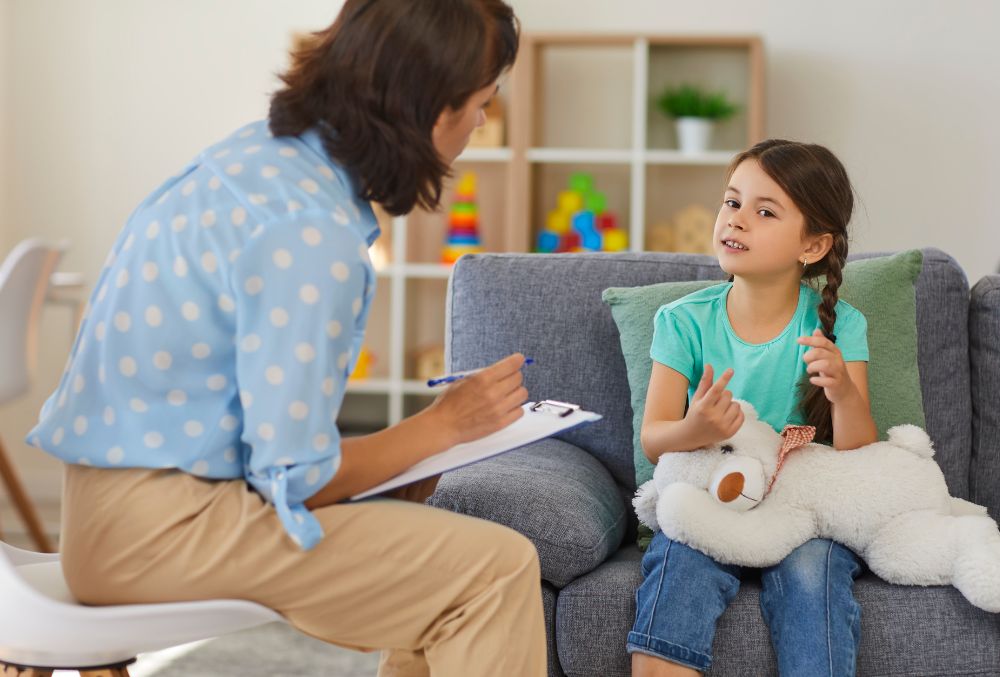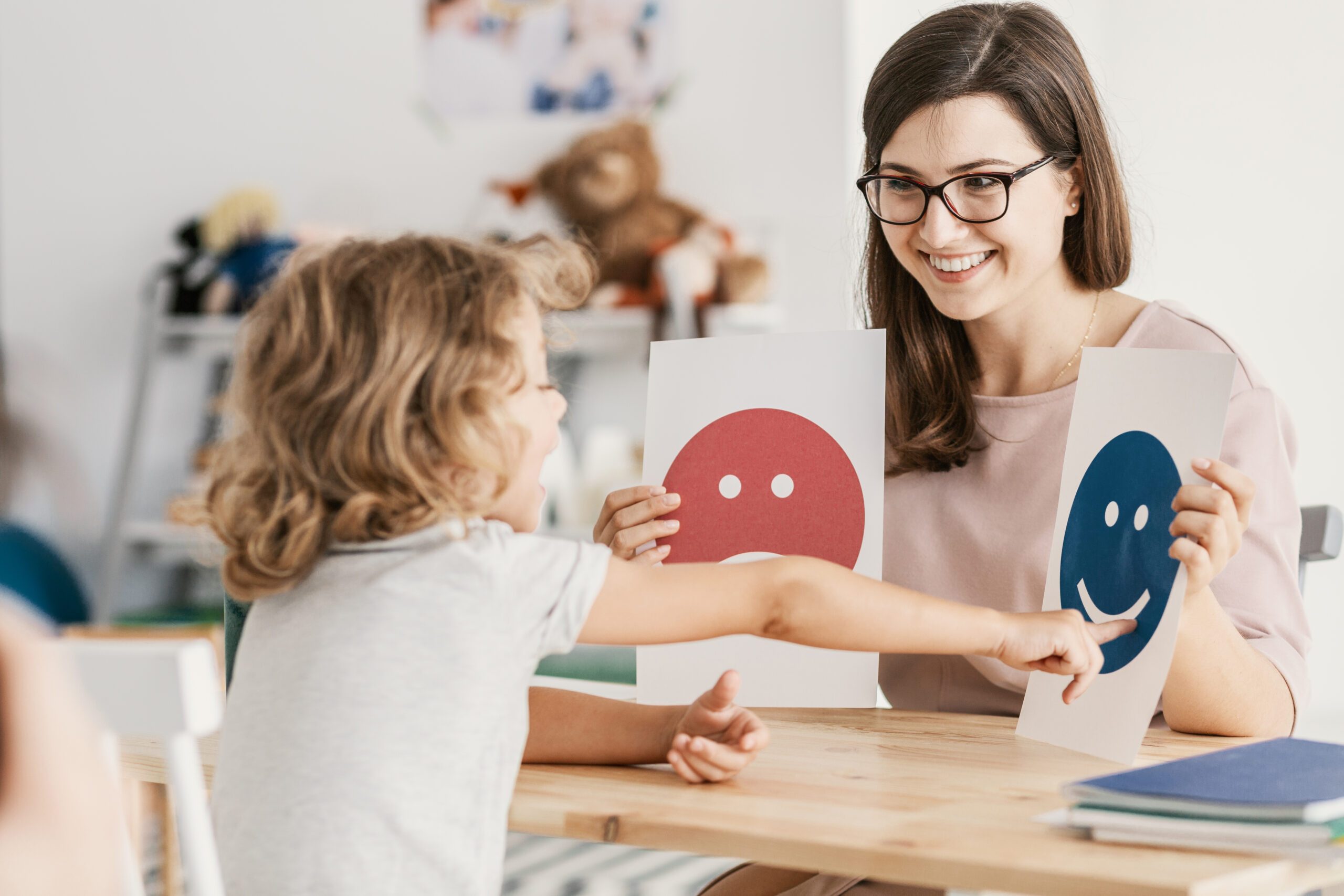Child/Play Therapy
Child/Play Therapy
Child therapy can help your child work through many difficulties. We have specialists for every age and stage across the lifespan. Our child therapists often engage through play, creativity, and movement.
Your involvement as a parent or caregiver is essential to the success of your child’s treatment. Your first step will be a comprehensive intake with your child’s therapist so that we can get to know your child’s strengths and areas for growth. We view parents as important experts on their children, and therefore as an essential member of the team, as we collaborate to create a plan to help relieve the distress, to build skills to help your child be more resilient and to increase the joy and connection in your family.
Our clinicians are specialized in working with children and adolescents on a variety of issues, including (but not limited to):
Three Easy Ways To Connect With Us

Washington Psychological Wellness Gaithersburg

Washington Psychological Wellness Rockville

Washington Psychological Wellness Telehealth
We Offer Telehealth Throughout Maryland
Frequently Asked Questions About Child Therapy
How do I know if my child/adolescent needs counseling or therapy?
Seeing your child struggle emotionally, socially, or academically can be an extremely upsetting and frustrating experience. It can sometimes be challenging to determine what your child is experiencing is a phase that he or she will grow out of or if something more serious is occurring.
Perhaps you have been noticing worrisome personality changes in your child. Your child’s behavior might be defiant, obstinate, and withdrawn, or he or she might be behaving in ways that are aggressive or shocking. Fighting and yelling might be regular occurrences in your household. When you wake your child in the morning, you may find that your son or daughter refuses to get out of bed, cries incessantly, and pleads not to be sent to school. You might receive reports from the school regarding your child’s missing homework or disruptive behavior during the day. When you pick your child up in the afternoon, he or she may be visibly upset but refuse to speak about what happened that day at school. When evening rolls around, there may be more arguing and fighting with your child. The two of you might regularly have late nights at the kitchen table, where you struggle to complete homework. At that point, your child might start to engage in negative self-talk, perhaps expressing self-hatred.
If you are still unsure if therapy would be helpful for your child, below are some questions to help you determine whether your child or adolescent would benefit from counseling/therapy:
- Is your son or daughter having difficulty getting over a divorce, perhaps saying that he or she hates you and wants to live with the other parent?
- Do teachers regularly call to report your child’s low grades, attention-seeking behavior, or inability to get along with peers?
- Have your child’s tantrums become so dramatic that you have started to feel helpless and defeated?
- Do you worry that parents, teachers, or even strangers on the street judge you because of your child’s behavior?
- Does your child display a level of aggression that shocks you, perhaps often hitting siblings or classmates?
- Does your child claim to hate him or herself, perhaps even threatening to commit acts of self-harm?
- Do you wish you knew how to connect with and help your child but fear that it may be too late to establish healthy boundaries?
If you answered yes to any of these questions, counseling and therapy could help!
At Washington Psychological Wellness, our child/adolescent counselors and therapists practice an integrative, holistic approach to healing, taking into account the mental, physical, and emotional health of your child and their physical, interpersonal, and familial well-being. We consider each child as unique and encourage parental involvement in every step of treatment.
Does taking my child to counseling or therapy make me a bad parent?
Not at all! People who struggle with a child’s defiant, angry or obstinate behavior often feel as though they have failed as parents. However, most parents experience difficulties while raising children. Parenting is a struggle, and it may be the most challenging job you have or will ever have in your lifetime.
While you may sometimes feel hopeless, it’s important to remember that your child is still developing. There’s still a lot of room for change. Every day your child is learning new social, academic, and emotional skills. You probably don’t do something perfectly the first time you learn it, so why would you expect otherwise from your child?
However, some behavioral problems are more than just growing pains. Suppose your child is struggling to cope with a recent divorce or death in the family. If you feel helpless, hopeless, and defeated as a parent, or if your son or daughter is lashing out with aggression, it may be time to seek a professional’s advice.
Thankfully, Washington Psychological Wellness can provide your family with the support it needs!
How might child/adolescent benefit from counseling or therapy?
Child/Adolescent counseling and therapy can be a very effective way to help families who are struggling with a child’s challenging behavior. Almost every family can benefit from counseling, regardless of whether their problems are “large” or “small.” During their sessions, your child can express uncomfortable fears, emotions, thoughts, and experiences through talk, play, art, and sand-tray therapy. These hands-on, developmentally appropriate therapies can help your son or daughter communicate in ways that feel safe, approachable, and easy to understand.
Your child can also learn to recognize and verbalize emotions, which can help your child slow down troublesome interactions and refrain from lashing out with physical or verbal aggression. With these tools in hand, your child can begin to recognize anger signals, take steps to cool down before things get out of control and use self-calming techniques to better manage negative emotions. By learning these techniques, your child can cultivate better relationships with siblings, teachers, and peers and learn a set of interpersonal skills that can last a lifetime. Finally, suppose your child is currently dealing with a divorce or family trauma. In that case, our therapists provide a safe environment for expressing emotions where they can grieve and process the changing climate.
Some of the many challenges child/adolescent counseling can help your child with include:
- ADD/ADHD
- Behavior Issues
- Anxiety
- Depression
- Divorce Impact
- Grief
- Bullying
- School Refusal
- Disordered Eating
- Separation Anxiety
As experienced therapists, we can tell you there’s still time for your child to develop into a happy, healthy adult. Childhood is wrought with challenges, but things do get better. With the help of an empathic, confidential, and non-judgmental therapist, your child can increase self-esteem and learn crucial emotional life skills that can help him or her navigate adolescence and the world beyond.
My child's problems aren't that bad. Can't we get through this on our own?
If your child’s tantrums are getting more dramatic by the day, if you’ve needed to change schools because of aggressive behavior from your child, or if your child seems withdrawn, moody, or depressed, or have expressed feelings of self-hatred, it’s time to try some new strategies. There’s no shame in utilizing child counseling services. Countless families have engaged in counseling and developed the tools and insights needed to make effective changes and experience more harmony within the home.

When is the Right Age to Address Child Therapy?
It’s natural to wonder if your child is the right age to benefit from therapy. At Washington Psychological Wellness, we believe that there’s no one-size-fits-all answer; instead, the right age to begin therapy depends on your child’s unique circumstances and developmental stage. Here are some general guidelines to help you decide:
- Early Childhood (Ages 3–6): This is a crucial time for emotional and social development. If your young child is experiencing difficulty managing emotions, adjusting to major life changes, or exhibiting concerning behaviors such as extreme aggression or withdrawal, early intervention through play therapy can be highly beneficial.
- Middle Childhood (Ages 7–12): As children grow, they develop more complex emotions and face increasing social and academic pressures. Therapy can help children in this age range navigate challenges like anxiety, grief, bullying, and difficulties in family dynamics or school performance.
- Adolescence (Ages 13–18): Teenagers are at a critical stage of self-discovery and independence. This period often brings struggles with self-esteem, identity, peer relationships, and emotional regulation. Therapy can provide a safe space for teens to express themselves, process emotions, and develop healthy coping mechanisms.
It’s important to remember that therapy is not just for severe issues—it’s a proactive tool that can help children of all ages build resilience, enhance emotional intelligence, and strengthen relationships. If your child is experiencing difficulties that impact their daily life, it’s worth exploring therapy as an option.
At Washington Psychological Wellness, our therapists are experienced in tailoring treatment to the developmental needs of children and adolescents. If you’re unsure whether it’s the right time for your child to begin therapy, we’re here to help guide you through the process and provide support every step of the way.
Want to learn more about Child Therapy?
Book a 15 minute intro call

